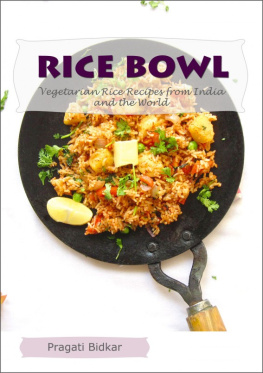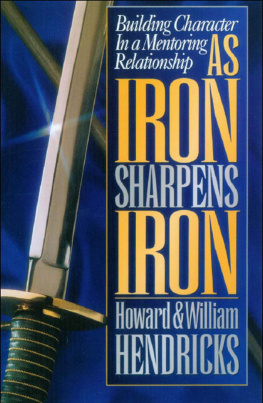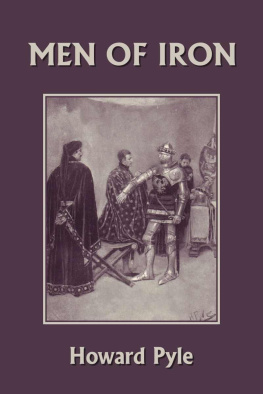East Gate Books
Harold R. Isaacs
RE-ENCOUNTERS IN CHINA
James D. Seymour
CHINA RIGHTS ANNALS 1
Thomas E. Stolper
CHINA, TAIWAN, AND THE OFFSHORE ISLANDS
William L. Parish, ed.
CHINESE RURAL DEVELOPMENT
The Great Transformation
Anita Chan, Stanley Rosen, and Jonathan Unger, eds.
ON SOCIALIST DEMOCRACY AND THE CHINESE LEGAL SYSTEM
The Li Yizhe Debates
Michael S. Duke, ed.
CONTEMPORARY CHINESE LITERATURE
An Anthology of Post-Mao Fiction and Poetry
Michiko N. Wilson
THE MARGINAL WORLD OF E KENZABURO
A Study in Themes and Techniques
Thomas B. Gold
STATE AND SOCIETY IN THE TAIWAN MIRACLE
Carol Lee Hamrin and Timothy Cheek, eds.
CHINAS ESTABLISHMENT INTELLECTUALS
John P. Burns and Stanley Rosen, eds.
POLICY CONFLICTS IN POST-MAO CHINA
A Documentary Survey, with Analysis
Victor D. Lippit
THE ECONOMIC DEVELOPMENT OF CHINA
James D. Seymour
CHINAS SATELLITE PARTIES
June M. Grasso
TRUMANS TWO-CHINA POLICY
Bruce L. Reynolds, ed.
REFORM IN CHINA
Challenges & Choices
Vaclav Smil
ENERGY IN CHINAS MODERNIZATION
Advances and Limitations
Pat Howard
BREAKING THE IRON RICE BOWL
Prospects for Socialism in Chinas Countryside
First published in 1988 by M. E. Sharpe,Inc.
This edition first published in 2020 by Routledge
2 Park Square, Milton Park, Abingdon, Oxon 0X14 4RN and by Routledge
52 Vanderbilt Avenue, New York, NY 10017
Routledge is an imprint of the Taylor & Francis Group, an informa business
1988 Taylor & Francis
All rights reserved. No part of this book may be reprinted or reproduced or utilised in any form or by any electronic, mechanical, or other means, now known or hereafter invented, including photocopying and recording, or in any information storage or retrieval system, without permission in writing from the publishers.
Publishers Note
The publisher has gone to great lengths to ensure the quality of this reprint but points out that some imperfections in the original copies may be apparent.
Disclaimer
The publisher has made every effort to trace copyright holders and welcomes correspondence from those they have been unable to contact.
East Gate Books are edited by Douglas Merwin
Library of Congress Cataloging-in-Publication Data
Howard, Patricia M., 1943
Breaking the iron rice bowl.
Bibliography: p.
Includes index.
1. CommunismChina. 2. ChinaRural conditions.
3. ChinaEconomic policy1976 . I. Title.
HX418.5.H68 1988 335.4345 8723364
ISBN 0-87332-454-4
ISBN 0-87332-471-4 (pbk.)
ISBN 13: 978-0-87332-454-0 (hbk)
All empty talk is useless. We must give material benefits to the people that they can see for themselves.
Mao Zedong
Since it is not for us to create a plan for the future that will hold for all time, all the more surely what we contemporaries have to do is the uncompromising critical evaluation of all that exists, uncompromising in the sense that our criticism fears neither its own results nor the conflict with the powers that be.
Karx Marx
The research for this study had three elements: participant observation, field interviews, and documentary research.
Participant Observation
From September 1981 to August 1983, I worked as a teacher of social sciences methodology at the University of Inner Mongolia. My husband, Roger Howard, was with me and taught social studies. Also with us for the first year were my parents, Dot and Jim Uhl, who taught journalism and American and English literature. We lived on campus and developed relatively close friendships with a number of students, colleagues, and neighbors. Each of us learned much from discussions and observations both within and outside the classroom context. Being an extended family, we naturally shared experiences and impressions with each other. To a great extent, this book reflects not just my own research and insights, but those of all four of us.
There are very few references in the book to observations or insights gleaned from my role as a teacher in China. I have avoided using such material either because it was of a confidential nature or because it was unverifiable. Nevertheless, being there made a difference. It enabled me to compare my data or impressions with those of Chinese friends. And most important, it provided a ready source of interpreters of the social reality unfolding around me. Some of these friends and colleagues became invaluable research assistants during field interviews.
Indirect Observation Through Field Interviews
During the academic year we were able to arrange short visits to the grasslands, and during the summer holidays, two longer visits. At the Spring Festival break in both years, we traveled to South China. We conducted interviews in rural settings in Yunnan, Sichuan, Fujian, and Shanghai. In 1982, we visited the countryside in the suburbs of Beijing. In August 1983, before leaving the country, we returned to the Guangzhou Foreign Languages Institute for an extended visit with former students and colleagues with whom we had worked from 1975 to 1977. With the aid of the Institute, we were able to conduct interviews with local cadres, peasants, and workers in rural industries in Shunde county in Guangdong.
There is nothing random about the places or people we visited. This raises the question of selectivity and bias in the information gleaned from these formal interviews. This is a serious problem facing all of us, Chinese and foreign, doing social research in China. Places visited tend to be those that are accessible by motorized vehicles traveling on paved roads. And yet, there are hundreds of thousands of villages that do not enjoy such advantages. The pace of development in such villages is directly affected by this lack of basic infrastructure for the exchange of information and commodities. Much of my information on out-of-the-way, underdeveloped areas came from students from such places who were studying in Huhhot and from discussions in the press about problems of uneven development and the persistence of pockets of poverty.
The problem of bias, however, goes deeper than the difficulties of gaining access to the more underdeveloped regions and villages. When interviewed by outsiders, both Chinese and foreign (waidi ren), cadres and peasants naturally tend to emphasize achievements and goals to the neglect of failures and persistent problems. Generally, Chinese efforts to spruce up for visitors and put their best foot forward should not be viewed as a devious conspiracy to fool the foreign guests. Nevertheless, this very normal and natural tendency presents a challenge to the serious researcher committed to uncovering the real dimensions of uneven development, setbacks, and persistent problems so as to evaluate more accurately the present situation and future prospects.
I was not seeking to capture the essential characteristics of some hypothetically typical representation of a Chinese rural collective after the introduction of household contracting. In my choice of villages, cadres, and peasant families to visit and interview, I was less concerned with constructing a precisely representative sample of Chinese rural collectives and communication relations within them than with interviewing a group of sufficient variability to reflect the extremes at both ends of a continuum of prosperity and poverty, unified collective management and decentralized household management, good to poor natural conditions and man-made infrastructural facilities, and good to poor political communication between villagers and their cadres and between the party-state and village cadres.










